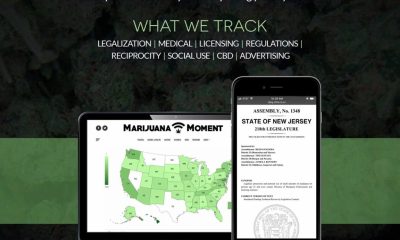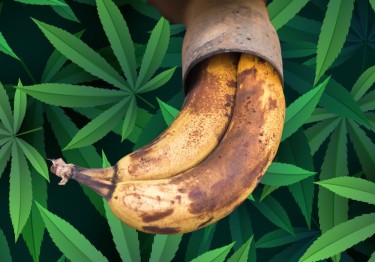Cannabis News
What to Expect in Cannabis Real Estate Deals
Published
1 year agoon
By
admin
Cannabis real estate transactions can be notoriously complicated – much more so than your average real estate deal. On January 9, 2024, I’ll be speaking on a panel called “Navigating Real Estate Issues Impacting the Cannabis Industry” for the Los Angeles County Bar Association, where my co-panelists and I plan on touching on many of the most precarious issues in these sorts of transactions. Today, I want to preview some of the key issues we see in these kinds of deals.
Location, location, location
The most important factor in any cannabis real estate transaction is location. Licensing authorities impose all sorts of requirements or restrictions on real estate locations, including:
- Zoning laws are usually hyper restrictive for cannabis companies. Cannabis businesses may be relegated to very small areas within a city. Permissible zones often change depending on the type of use. For example, some cities may allow storefront retail facilities closer to residential areas, whereas you can virtually guaranty that volatile manufacturing will be stuck in industrial zones.
- States and cities also impose all kinds of location-specific restrictions. Cannabis businesses, for example, may be prohibited within X feet of schools, parks, churches, libraries, etc. In places like California, cities often add restrictions on top of state-specific requirements.
- States or cities may also impose limitations on the number of cannabis businesses that can be located in a specific area. Sometimes we see caps on licenses within a city (more on that later), whereas some cities will instead prohibit two different cannabis businesses from existing within a certain distance from each other.
- In addition to location-specific issues, there may be a host of property-specific issues that could disqualify a potential property. A piece of real estate may be properly zoned and outside buffer zones, but may not comply with local parking requirements, setback requirements, electricity needs, and so on.
Each of the issues above can be automatic disqualifiers for a parcel of real estate. Things like buffer zone locations can be difficult to figure out and change over time. For example, a school might open up in an area before a cannabis business submits a license application, and it may lose out on its chance to do so. All of this is to say that performing diligence on a property and its location is absolutely critical prior to entering into a lease or committing to purchase a piece of real estate.
Buying v. leasing?
When a cannabis company finds a good piece of property in a good location, the next most important decision it needs to make is whether to buy it or lease it. There are some key exceptions here, like large farms or processing facilities in industrial or agricultural areas. But in general, most cannabis companies tend to lease. There are a lot of reasons why cannabis companies opt to lease real estate instead of buying. I discussed that in detail here. But generally speaking:
- Cannabis companies are startups with limited funds that opt to lease, rather than buy.
- Buying real estate is usually much more complicated than leasing it.
- Businesses don’t want to commit to a multi-million dollar purchase before knowing they can secure a license and/or have any prospect of success.
- Financing is a big challenge! That brings me to the next point.
Financing, escrow, and title
Securing financing has long been a challenge for cannabis companies. In fact, my last post analyzed key issues that cannabis companies can expect when trying to secure financing. Few startup cannabis companies are sufficiently capitalized to purchase real estate without financing, and because traditional financing is almost never available, buyers usually end up with much higher interest rates and more lender-friendly terms.
But buyers are not the only ones that have to deal with financing-related issues. If a cannabis company wants to lease a piece of property that is subject to a mortgage, it will probably not happen. Big banks do not usually bank cannabis money, and usually will have the ability to default their borrower (the landlord) for leasing to a cannabis company. I’ve seen a lot of potential real estate leases fail for this reason alone.
Another difficulty here is getting escrow companies or title insurance companies to work on cannabis real estate transactions. Like bigger banks, many of them simply won’t do touch cannabis transaction. This is especially so in jurisdictions when they commence licensing.
Addressing licensing uncertainty in cannabis real estate deals
There is no way a cannabis company can guarantee that it will secure a license. Even in non-competitive jurisdictions, there are a host of potential property- or location-specific issues that could bar a license application. The chance of losing out is much, much higher in a city with 3 licenses up for grabs and 30 different applicants. I recently wrote about some key issues for competitive licensing jurisdictions and real estate leases here.
Of course, there are ways to hedge against these kinds of uncertainty. Here are a few I’ve seen:
- Non-binding letters of intent or term sheets may be acceptable to some cities, but they obviously come with the risk that the lessor could walk away or change key terms if the agreement is not binding.
- Options to lease or purchase upon securing a license, as opposed to full-scale leases or purchase agreements, can be a good way to tie up a piece of property while waiting for a license to issue.
- Leases with termination rights if a license is not secured are yet another way to hedge against denial of an application.
It’s key to point out that licensing authorities may have strict requirements on what a tenant needs to show in order to apply. Some cities will not allow a document unless it is binding (i.e., an option or a full-fledged lease). This is yet another reason why early diligence is so key.
Other issues for cannabis real estate transactions
Some other key issues that I’ve seen come up more than once include the following:
- I have never seen a cannabis applicant that did not construct at least some tenant improvements to their facility in order to get licensed. Tenant improvements can lead to increases in real property taxes. It’s best practice to address who is responsible for those improvements in a lease.
- Going off the last point, I’ve seen quite a few cannabis tenants turn a dilapidated building in an industrial area into a highly productive, state-of-the-art facility. As you can imagine, this costs a lot of money. Savvy tenants may try to negotiate some kind of tenant improvement allowance from the landlord. Or they may use their improvements to justify lower rent or a longer lease term.
- Form commercial real estate leases universally require tenants to comply with all laws. It’s good practice to carve out federal cannabis laws. Not only will this avoid a default trap, but it will also prevent a landlord from trying to later terminate a lease with the claim that they were unaware that cannabis was federally illegal (yes, I’ve seen things like that happen).
- Renewal options are key! Cannabis leases tend to hover around five year initial terms. In states like California where licenses are effectively tied to a single piece of real estate forever, landlords have immense power to walk away from the lease at the end of the lease term unless a tenant has renewal options (and timely exercises them). This obviously would be devastating for an applicant who couldn’t move its license elsewhere.
- Purchase options are also important. Cannabis lease rent tends to be much higher than market rent for similar non-cannabis uses. And it almost always increases year over year. Businesses with multi-year lease terms may want a purchase option so that they can determine whether it makes more sense to buy the property outright (if doing very well) as opposed to paying X times market rate each month.
I could keep going here for a long time. The point is that real estate deals in the cannabis space are difficult and are riddled with potential pitfalls. Using a form lease from a normal commercial transaction is almost always a bad idea, and failing to properly diligence real estate can lead to repercussions.
You may like
-


5 Cannabis Christmas Recipes to Try This Holiday Season at Home or the Office Party!
-


Cannabis operators report Instagram page ‘shadow bans’ and closures
-


How Interstate Commerce is Driving the Growth of Hemp-Derived Consumer Products
-


The Grinch Stole SAFE Banking from the Cannabis Industry This Christmas, Yet Again!
-


HHC vs. Delta 9: Differences & Similarities
-


DOJ Asks Federal Court To Deny Doctors’ Lawsuit Over Marijuana Rescheduling Hearing To Avoid ‘Undue Delay’
Cannabis News
5 Cannabis Christmas Recipes to Try This Holiday Season at Home or the Office Party!
Published
38 minutes agoon
December 23, 2024By
admin

Ah yes, it’s that magical time of year again when Ganja Clause slides down the chimney to visit all the good little stoners. The lights are twinkling, the fire is crackling, and the sweet aroma of cannabis-infused treats fills the air. As someone who’s spent years experimenting with cannabis cuisine, I’ve learned that the holidays present the perfect opportunity to elevate traditional recipes to new heights.
To help make your holidaze more “dazey,” I’ve crafted five festive recipes that combine seasonal favorites with our favorite herb. These dishes aren’t just about getting high – they’re about creating memorable experiences and new traditions. But before we dive in, I need to emphasize something crucial: dosing is always important, and you should NEVER give these recipes to anyone without their explicit consent. While sharing is caring, tricking someone into consuming cannabis is not only unethical but potentially illegal. Always clearly label your infused treats and keep them safely away from children and unsuspecting guests.
With those important notes out of the way, let’s get into these magical recipes that will make your holiday season extra special.
Look, we all know eggnog is a holiday staple, but why not kick it up a notch? This cannabis-infused version will have you feeling jolly in no time. Just remember – this isn’t your grandma’s recipe (unless your grandma is really cool).
What You’ll Need:
-
4 cups milk (or non-dairy alternative if that’s your jam)
-
1 cup heavy cream (or coconut cream for you plant-based folks)
-
6 egg yolks (fresh is best, trust me)
-
1/2 cup sugar
-
1 tsp vanilla extract
-
1/2 tsp ground nutmeg
-
1 tbsp cannabis tincture or cannabis-infused syrup
The Magic Process:
-
Start by heating your milk and cream in a saucepan. You want it hot but not boiling – we’re making eggnog, not scrambled eggs.
-
In a separate bowl, whisk those egg yolks, sugar, and vanilla until they’re well combined and looking smooth.
-
Here’s the tricky part: slowly (and I mean SLOWLY) add the hot milk mixture to your egg mixture while whisking constantly. If you dump it all in at once, you’ll end up with sweet scrambled eggs, and nobody wants that.
-
Pour everything back into your saucepan and cook over medium heat, stirring constantly until it thickens enough to coat the back of a spoon.
-
Remove from heat, stir in that nutmeg, and let it cool a bit before adding your cannabis tincture or syrup.
-
Chill thoroughly before serving.
Pro tip: Start with a small serving – this stuff can creep up on you!
Want to elevate your holiday meal? This gravy will take your feast to new heights. It’s perfect for drowning those mashed potatoes or smothering that turkey.
The Goods:
-
2 cups chicken or vegetable stock
-
1/4 cup all-purpose flour
-
1/4 cup cannabis butter (cannabutter)
-
1/2 tsp salt
-
1/4 tsp black pepper
-
1 tbsp chopped fresh herbs (thyme or rosemary work great)
The How-To:
-
Melt your cannabutter over medium heat in a saucepan. Watch it carefully – burnt butter is not the vibe we’re going for.
-
Whisk in the flour to create your roux. Cook it for about 1-2 minutes to get rid of that raw flour taste.
-
Now, slowly pour in your stock while whisking like your life depends on it. No lumps allowed!
-
Add your seasonings and herbs.
-
Keep stirring and simmering until it reaches your desired thickness.
-
Taste and adjust seasonings if needed (before you get too lifted).
Remember: Label this clearly! You don’t want Aunt Martha accidentally pouring this all over her plate without knowing what’s up.
Forget that canned stuff – this homemade cranberry sauce with a special twist will have everyone at the table asking for seconds (though you might want to limit them to just one serving).
The Ingredients:
Getting Saucy:
-
Toss your cranberries, OJ, and sugar into a saucepan over medium heat.
-
Let it cook until those cranberries start popping like tiny little fireworks (about 10 minutes).
-
Once it’s thickened up nicely, remove from heat.
-
Here comes the fun part – stir in your cannabis-infused honey or tincture.
-
Let it cool completely before serving.
Pro tip: Make two batches – one regular and one infused. Just make sure to label them clearly!
These aren’t your regular sweet potatoes – they’re elevated sweet potatoes. Perfect for getting baked while getting baked.
What You Need:
-
4 large sweet potatoes
-
1/2 cup cannabis butter (cannabutter)
-
1/4 cup brown sugar
-
1 tsp ground cinnamon
-
1/2 tsp ground nutmeg
-
Salt to taste
-
Marshmallows (optional, but highly recommended)
The Method:
-
Preheat your oven to 375°F (190°C).
-
Bake those sweet potatoes until they’re tender (about an hour).
-
Once they’re cool enough to handle, peel and mash them up.
-
Mix in your cannabutter, brown sugar, and spices.
-
Transfer to a baking dish.
-
If you’re feeling extra, top with marshmallows.
-
Bake for another 20-30 minutes until everything’s golden brown and gorgeous.
Warning: These are dangerously delicious – pace yourself!
This warm, spicy cider will lift your spirits in more ways than one. Perfect for those chilly winter nights.
The Essentials:
The Process:
-
Pour your cider into a large pot.
-
Add your cinnamon sticks, cloves, and orange slices.
-
Heat until it just starts to bubble, then reduce to a simmer.
-
Add your cannabis-infused maple syrup (or add tincture to individual cups for controlled dosing).
-
Let everything mingle and get cozy for about 20 minutes.
-
Serve it up warm with an orange slice or cinnamon stick garnish.
Pro tip: Keep a non-infused batch warming for designated drivers and non-partaking guests.
Remember folks, the key to a successful Dankmas feast is clear labeling and careful dosing. Nothing ruins a holiday gathering quite like someone getting unexpectedly zooted. Happy cooking, and may your holidays be dank and delightful!
There you have it, folks – five unique ways to spice up your Dankmas traditions and make the season truly memorable. As someone who’s hosted many cannabis-friendly holiday gatherings, I can’t stress enough the importance of starting slow with these recipes. Edibles can take anywhere from 30 minutes to two hours to fully kick in, and you definitely don’t want to overdo it during family dinner. I strongly recommend doing a test run with different dosages before the big day to find your sweet spot.
What I love most about these recipes is that they offer a fantastic alternative for those looking to skip the traditional alcohol-heavy holiday celebrations. Cannabis provides a more natural way to unwind and connect with loved ones during this special time of year. Plus, you won’t have to worry about a hangover the next morning!
Remember to celebrate responsibly, be open about what’s infused and what isn’t, and most importantly, enjoy the magic of the season. Happy Dankmas to all, and to all a good height!
MORE DANKMAS STORIES, READ ON…
Cannabis News
The Grinch Stole SAFE Banking from the Cannabis Industry This Christmas, Yet Again!
Published
1 day agoon
December 22, 2024By
admin

The landscape of cannabis legislation in the United States has been a complex and evolving issue, particularly concerning banking regulations. As of December 2024, it has become official: the current Congress will not provide any protections for banks that serve state-legal marijuana businesses. This decision has significant implications for the cannabis industry, which continues to grow rapidly despite the lack of federal support. In this article, we will explore the reasons behind this decision, the implications for cannabis businesses, and the broader context of cannabis legalization in America.
The State of Cannabis Legalization
A Growing Industry
The cannabis industry has seen remarkable growth over the past decade. As of late 2024, 23 states and Washington D.C. have legalized recreational marijuana use, while 38 states allow medical marijuana. According to recent estimates, the legal cannabis market in the U.S. is projected to reach over $40 billion by 2025. This growth has been fueled by changing public perceptions of marijuana, increased advocacy for legalization, and significant tax revenues generated by state-legal cannabis sales.
The Banking Dilemma
Despite this rapid expansion, cannabis businesses face unique challenges, primarily due to their inability to access traditional banking services. Federal law classifies marijuana as a Schedule I controlled substance under the Controlled Substances Act. This classification creates a significant barrier for banks and financial institutions that wish to work with cannabis businesses, as they risk federal penalties for facilitating transactions related to an illegal substance.
As a result, many cannabis companies operate on a cash-only basis. This situation not only poses safety risks—such as increased theft and violence—but also limits these businesses’ ability to manage finances effectively, pay taxes electronically, and build credit histories.
Legislative Attempts at Reform
One of the most prominent legislative efforts aimed at addressing these banking issues is the Secure and Fair Enforcement (SAFE) Banking Act. First introduced in 2019, the SAFE Banking Act sought to provide protections for banks that serve legal cannabis businesses by preventing federal regulators from penalizing them for doing so.
The act garnered significant bipartisan support in both the House and Senate. In previous sessions of Congress, it passed multiple times in the House but faced hurdles in the Senate due to opposition from certain lawmakers who were concerned about broader implications of marijuana legalization.
In light of ongoing discussions about federal spending and budgetary priorities, advocates had hoped that some version of the SAFE Banking Act would be included in recent spending bills. However, during negotiations leading up to December 2024, a House committee led by Republicans removed any provisions related to marijuana banking protections from key spending legislation.
This decision reflects a broader trend within Congress where discussions around cannabis reform have become increasingly contentious. While there is still bipartisan support for certain aspects of cannabis legislation—particularly when it comes to medical use—more comprehensive reforms like banking protections have struggled to gain traction.
Implications for Cannabis Businesses
Continued Cash-Only Operations
The removal of banking protections means that many cannabis businesses will continue to operate primarily on a cash basis. This situation presents several challenges:
-
Safety Risks: Cash-only operations make cannabis dispensaries and cultivation facilities prime targets for theft and robber Employees often have to handle large amounts of cash daily, increasing their risk of violence.
-
Operational Inefficiencies: Without access to banking services, businesses cannot easily manage payroll or pay bills electronically. This inefficiency can lead to operational delays and increased costs.
Impact on Public Safety
Advocates argue that providing banking access would enhance public safety by reducing the amount of cash circulating within the community. By allowing cannabis businesses to deposit their earnings into banks, it would minimize the risks associated with cash transactions, making both employees and customers safer.
Moreover, having a transparent financial system would help law enforcement track illicit activities more effectively. Currently, without proper banking oversight, there are concerns that some cash-only operations may be involved in money laundering or other illegal activities.
Politics and Public Opinion
Changing Attitudes Toward Cannabis
Public opinion on marijuana legalization has shifted dramatically over recent years. According to various polls, a significant majority of Americans now support legalizing marijuana for both medical and recreational use. This shift has put pressure on lawmakers to address outdated federal policies regarding cannabis.
Despite this growing acceptance among the public, political divisions remain strong within Congress regarding how best to approach cannabis reform. Some lawmakers advocate for full legalization at the federal level, while others prefer a more cautious approach that prioritizes regulation over outright legalization.
The Role of Advocacy Groups
Advocacy groups play a crucial role in pushing for legislative change regarding cannabis banking protections. Organizations such as the National Cannabis Industry Association (NCIA) and Americans for Safe Access (ASA) have been vocal proponents of reforming banking laws to support state-legal cannabis businesses.
These groups have mobilized public support through campaigns highlighting the safety risks associated with cash-only operations and advocating for policies that promote financial inclusion for cannabis entrepreneurs.
Future Prospects for Cannabis Banking Reform
While current congressional efforts have stalled regarding marijuana banking protections, there are still potential avenues for reform:
-
Incremental Reforms: Rather than pursuing comprehensive federal legislation like the SAFE Banking Act all at once, lawmakers may consider incremental reforms that address specific issues related to banking access without fully legalizing marijuana at the federal level.
The Role of Public Awareness
As public awareness about the challenges faced by cannabis businesses grows, there may be increased pressure on lawmakers to act decisively on this issue. Continued advocacy efforts can help ensure that banking reform remains a priority on Congress’s agenda.
Conclusion
The decision by Congress not to include marijuana banking protections in its current spending bill underscores ongoing tensions surrounding cannabis legislation in America. While public opinion increasingly favors legalization and reform, political divisions continue to hinder progress on critical issues such as banking access for state-legal marijuana businesses.
As the industry continues to grow despite these challenges, stakeholders must remain vigilant in advocating for change while exploring alternative solutions at both state and federal levels. The future of cannabis banking reform remains uncertain; however, with continued advocacy and public support, there is hope that meaningful progress can be made in addressing these pressing issues facing one of America’s fastest-growing industries.
SAFE BANKING SINCE 2018, WHAT A FAILURE, READ ON…
SAFER BANKING ACT FAILS AGAINS, SAME OF BANANA IN THE TAILPIPE!
Cannabis News
HHC vs. Delta 9: Differences & Similarities
Published
3 days agoon
December 20, 2024By
admin

Cannabis has so many compounds, and two that have been making the rounds lately are HHC and Delta 9 THC. They’re not the same thing, even though they’re both cannabinoids that interact with the body’s endocannabinoid system. Some people want a mild, steady experience, while others might be looking for something more intense. Understanding these two can help you figure out what’s right for you.
What Is HHC?
HHC, short for hexahydrocannabinol, is a hydrogenated version of THC. It’s not something you’d find naturally in large amounts in cannabis plants. Instead, it’s made through a process that adds hydrogen molecules to THC. The result? A more stable compound that’s less prone to breaking down when exposed to heat or UV light.
How HHC Is Made
Think of it like a science experiment. HHC is usually created in a lab by taking Delta 9 or Delta 8 THC and using hydrogenation—basically, combining it with hydrogen under pressure and in the presence of a catalyst. This process changes its structure while keeping its effects somewhat similar to THC.
Common Uses and Effects of HHC
People who use HHC say it’s somewhere between Delta 8 and Delta 9 in terms of effects. It’s often described as relaxing but without being overly sedative. You might feel a light buzz, reduced stress, or mild euphoria. Some even claim it helps with discomfort or improving sleep, but solid research is still catching up. Since it’s less potent than Delta 9, it’s often favored by those who want a manageable experience without the strong psychoactive punch.
If you’re interested in trying HHC and Delta 9 for yourself, check out their wide range of products at trycandycloud.com. They’ve got everything from gummies to disposable vapes, all crafted for a smooth experience.
What Is Delta 9 THC?
Delta 9 THC is the main psychoactive compound in cannabis. It’s the reason you feel “high” when you use weed. Chemically speaking, Delta 9 has a double bond in its ninth carbon chain, which plays a big role in how it interacts with your brain.
Natural Occurrence in Cannabis
This one is straightforward: Delta 9 is found in high concentrations in marijuana plants. It’s what most people think of when they hear “THC.” Unlike HHC, there’s no need for a lab process—it’s already there. Hemp plants, however, contain much lower levels of Delta 9 THC, which is why it’s primarily extracted from marijuana.
Common Uses and Effects of Delta 9 THC
The effects of Delta 9 are well-documented. Depending on the dose, you might feel euphoria, increased appetite, or deep relaxation. For medical users, it’s often used to manage chronic pain, nausea, and other conditions. It’s also been studied for its potential benefits in anxiety relief, though higher doses might have the opposite effect, causing paranoia. Delta 9 THC is versatile, but it’s not without its risks, particularly for new users or those sensitive to its psychoactive effects.
Key Differences Between HHC and Delta 9 THC
Chemical Structure and Composition
The main difference is in their structure. Delta 9 THC has that iconic double bond, while HHC’s hydrogenation makes it more stable. This difference might not mean much to the average person, but it’s why HHC is less likely to degrade over time.
Potency Levels
Delta 9 THC is generally more potent. HHC might require a higher dose to get a comparable effect, but some people prefer its lighter touch. Potency differences can also depend on the method of consumption, with edibles typically providing a stronger, longer-lasting effect compared to vaping or smoking.
Duration of Effects
Both last a few hours, but some users report that HHC’s effects fade more gradually. Delta 9, on the other hand, can have a sharper comedown. HHC’s gradual fade makes it appealing for those who want a smooth end to their experience.
Benefits and Drawbacks of HHC and Delta 9 THC
HHC: Pros and Cons
Pros:
- More stable, so it lasts longer on the shelf.
- Effects are milder, making it less overwhelming for beginners.
- Can be a functional option for daytime use.
Cons:
- Limited research, so we don’t know its full impact yet.
- Availability can be hit or miss depending on where you live.
- Legal gray area in many regions.
Delta 9 THC: Pros and Cons
Pros:
- Well-studied with established medical uses.
- Widely available in areas where cannabis is legal.
- Stronger effects make it ideal for experienced users or those with high tolerance.
Cons:
- Higher chance of side effects like anxiety.
- More likely to show up on drug tests.
- Shorter shelf life compared to HHC.
Frequently Asked Questions (FAQ)
Q. Is HHC safer than Delta 9 THC?
Not enough research exists to say definitively, but HHC’s milder effects might make it feel safer to some users.
Q. Will HHC or Delta 9 THC show up on a drug test?
Yes, both can potentially show up on a drug test, so use with caution if that’s a concern.
Q. Which one is better for recreational use?
That depends on your preferences. HHC is great for a mellow time, while Delta 9 is better if you’re looking for something more intense.
HHC vs. Delta 9: Choosing the Right One for You
The choice comes down to what you’re after. If you want a milder, more laid-back experience, HHC might be a good option. On the other hand, if you’re looking for something stronger or need it for medical reasons, Delta 9 is the way to go. It also depends on what’s legal and available where you are. And always consider your tolerance levels and experience before diving in. If you’re unsure, consult with a knowledgeable dispensary staff.
Resources:

5 Cannabis Christmas Recipes to Try This Holiday Season at Home or the Office Party!

Cannabis operators report Instagram page ‘shadow bans’ and closures

How Interstate Commerce is Driving the Growth of Hemp-Derived Consumer Products

The Grinch Stole SAFE Banking from the Cannabis Industry This Christmas, Yet Again!

HHC vs. Delta 9: Differences & Similarities
DOJ Asks Federal Court To Deny Doctors’ Lawsuit Over Marijuana Rescheduling Hearing To Avoid ‘Undue Delay’

What Federally Illegal Drug Has Created Almost $10 Billion in Sales Tax Revenue for States in the Last 40 Months?

Three Wise Men Give Marijuana Strain Gift Suggestions

Tasmanian Hemp Assoc Bids Goodbye To Australian Hemp Council

Teen Marijuana Use Continues To Drop With Legalization

Distressed Cannabis Business Takeaways – Canna Law Blog™

United States: Alex Malyshev And Melinda Fellner Discuss The Intersection Of Tax And Cannabis In New Video Series – Part VI: Licensing (Video)

What you Need to Know

Drug Testing for Marijuana – The Joint Blog

NCIA Write About Their Equity Scholarship Program

It has been a wild news week – here’s how CBD and weed can help you relax

Cannabis, alcohol firm SNDL loses CA$372.4 million in 2022

A new April 20 cannabis contest includes a $40,000 purse

Your Go-To Source for Cannabis Logos and Designs

UArizona launches online cannabis compliance online course
Trending
-

 Cannabis News2 years ago
Cannabis News2 years agoDistressed Cannabis Business Takeaways – Canna Law Blog™
-

 One-Hit Wonders2 years ago
One-Hit Wonders2 years agoUnited States: Alex Malyshev And Melinda Fellner Discuss The Intersection Of Tax And Cannabis In New Video Series – Part VI: Licensing (Video)
-

 Cannabis 1012 years ago
Cannabis 1012 years agoWhat you Need to Know
-

 drug testing1 year ago
drug testing1 year agoDrug Testing for Marijuana – The Joint Blog
-

 Education2 years ago
Education2 years agoNCIA Write About Their Equity Scholarship Program
-

 Cannabis2 years ago
Cannabis2 years agoIt has been a wild news week – here’s how CBD and weed can help you relax
-

 Marijuana Business Daily2 years ago
Marijuana Business Daily2 years agoCannabis, alcohol firm SNDL loses CA$372.4 million in 2022
-

 California2 years ago
California2 years agoA new April 20 cannabis contest includes a $40,000 purse





